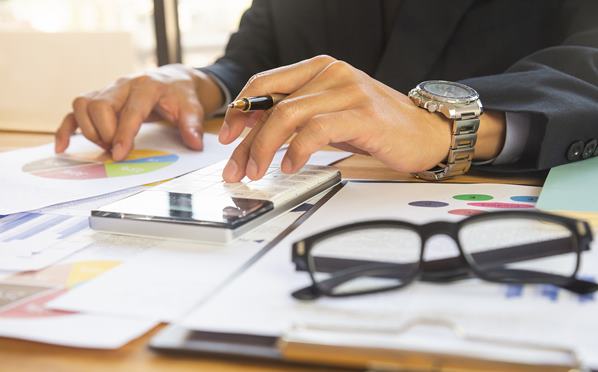
If you’re not careful, it’s easy to forget simple things when it comes to gathering your expenses once the tax month rolls around. The best way to keep track of your outgoings is to gather receipts for everything. If they’re not expenses, you can throw them away, but you can’t claim for expenses without a receipt.
From entertainment to your travel, we have an easy guide on how to keep track of your money without any fuss. There are multiple things that count as expenses, and there are also different ways to document them depending on the product.
Expense receipts need to be held for a long time, so be sure to not throw anything away. HMRC require LTD companies to keep their receipts for six years, whereas self-employed people need to keep them for five years.
The easiest way to keep hold of your records would be to build them into a spreadsheet which you can constantly keep up to date.
One of the most important things, if you’re working for yourself, is to open a business bank account – you need to separate your funds to avoid confusion. Records will be kept through statements and it’ll help you plan your taxes too.
Expenses can come under all sorts of categories, from meals and entertainment to travel and gifts. When documenting your receipts, it’s a good idea to write information on them, such as who you went with and the purpose of the meal.
While keeping track of your receipts is incredibly important, it’s worth scanning them all onto your computer, to ensure they aren’t lost over time. Scanning them allows you to then put them into folders and organise them, ensuring you’re following the HMRC guidelines.
Depending on the meeting, some expenses can be difficult to place. Work expenses can be covered anywhere, whether that’s a concert or a game of minigolf, but the placement can vary. For example, a concert would be entertainment if you both attended, but if it was gifted to the business partner, it would be classed as such.
For the many people who work from home, keep track of what you use for office purposes only and what covers both office and personal. If you use your phone to make a number of business calls, keep a record of them so you can expense your phone bill.
Working from home will entitle you to a number of tax breaks and give you the ability to deduct internet costs, phone bills and transportation costs for business use. The best way to keep track of use at home is to track each hour spent at work against the number of calls taken. Additionally, once filling up your car with petrol – and keeping the receipt – keep track of every business trip and how many miles it has taken to get there and back.
Once the details have been moved onto the spreadsheet and your receipts have been scanned onto your computer, your expenses should be easy to navigate. To make things even easier, place them into files by month, so you’ll never lose an expense report, and you will know where to find everything if you need it.
About the Author
Debbie Fletcher is an enthusiastic, experienced writer who has written for a range of different magazines and news publications over the years. Graduating from City University London specialising in English Literature, Debbie’s passion for writing has since grown. She loves anything and everything technology, and exploring different cultures across the world. She’s currently looking towards starting her Masters in Comparative Literature in the next few years.




